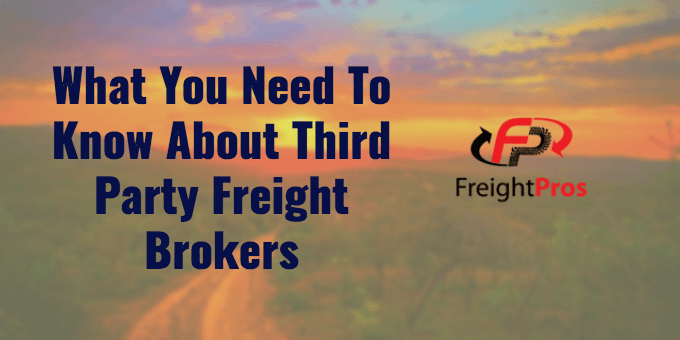
Need to ship a mattress? Looking to ship an engine? You might need a third party freight broker, so let me tell you what you need to know! What is a third party freight broker? How do I become one? Do I need a license? Does the shipping industry drive all of us crazy?
These are some pretty common questions that we get here at FreightPros, so I wanted to provide a bit of clarification concerning our business. And while we’re at it, check out our freight shipping guide to learn even more about the freight and shipping business.
WHAT IS A THIRD PARTY FREIGHT BROKER?
A freight broker is a third party agent that brokers freight rates between customer and carrier. Think buying in bulk. Brokers throw more business to freight carriers than single companies or individuals could, and in return they have access to shipping rates that individuals going carrier direct will not have.
But this is only one part of being a broker. Full service brokers handle their customer’s shipments from pickup to delivery. They also handle all billing, as well as supplying their customers with use of a TMS system that coordinates and makes LTL shipping easy and convenient.
HOW DO I BECOME A BROKER?
There are two options available. The first, you can start your own brokerage company. This is the longer plan of the two, as you’ll need various legal documents to become a certified broker. The second path to becoming a freight broker is to become a broker agent. An agent works under the umbrella of a certified broker’s authority, while bringing in their own customers and negotiating a split of the profits.
DO I NEED A BROKER LICENSE?
Yes, if you’re going to become an authorized broker you will need to be licensed. This means that you will need an Motor Carrier (MC) number that allows you to legally transport freight across state lines as well as allowing the government to monitor broker activity.
You’ll also need a $75K broker bond to qualify as a freight broker. There has been a lot of chatter recently concerning new regulations in the LTL freight industry so make sure you’re covering all your bases before you start moving LTL or truckload freight.